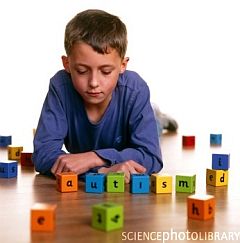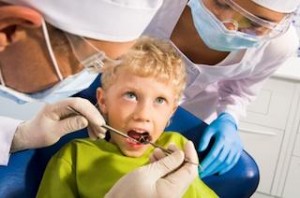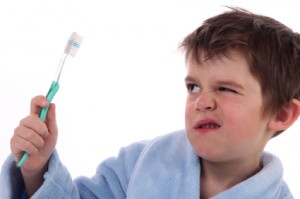Autism affects about 1 or 2 people in every thousand and is three to four times more common in boys than girls. Dental management for children with autism will vary from normal due to their special condition.
What is autism?
Autism is a developmental disorder, more accurately described as autistic spectrum disorder (ASD) because it includes a range of conditions. All are characterized by three key diagnostic features:
- Impairment of social interaction
- Impairment of communication
- Repetitive, stereotypical patterns of behavior
Autism has a wide range of expression. Even though three-quarters have some degree of learning disability, some individuals have normal or near-normal intelligence. The mildest form, Asperger’s syndrome, is compatible with a near-normal life.
What is the cause of autism?
Autism is considered to be primarily genetic in origin. It is not unusual for siblings to be affected, though they may not be recognized if signs are limited to subtle lack of social skills or failure of language development. Autism appears to be a complex multi-factorial condition and several genes have been identified that may contribute on both autosomes and sex chromosomes. It appears that there are changes in brain structure in autism, but these remain to be defined.
What features of autism in children will affect dental management?
- Verbal communication is a major problem. Many children never develop functional speech and are reliant on communication aids. Some develop the ability to repeat back what is said to them, seemingly understanding, but usually not. One positive aspect of this behavior is that copying the sound ‘ah’ may allow the dentist to see inside the mouth.
- Lack of nonverbal communication may make dental management difficult. There is a lack of eye contact, making it difficult to gain and maintain attention, and an inability to interpret nonverbal signals or emotions from facial expression or tone of voice.
- Aversion to physical contact makes examination, treatment and the usual means of physical reassurance ineffective.
- Hypersensitivity to sights, sounds, smells and touch may be a feature and present problems with tooth brushing and dental treatment.
- Idiosyncratic behaviors, such as highly specific insistence on the color or consistency of food, are frequent. This may make dietary control difficult.
- Autism is associated with a strong need for routine. Individuals will like events to be predictable therefore they are resistance to change, and new experience may unbalance the while day.
- Unusual diets are frequent because many parents exclude wheat, dairy products or yeast in an attempt to improve the condition. In combination with the child’s own dietary demands, this may make dietary prevention very difficult.
Are other significant medical conditions associated with autism?
The behavioral pattern of autism can have several causes and 10% of individuals will have other conditions such as Rett’s syndrome, fragile X syndrome, tuberous sclerosis or phenylketonuria.
Epilepsy is a common association and, if not present in childhood, often manifests as in adolescence. Attention deficit hyperactivity disorder is sometimes present and the child may take methylphenidate (Ritalin) to address the behavior.
Might treatment for autism affect or aid dental care?
Drug treatments include anti-epileptics, methylphenidate, selective serotonin reuptake inhibitors, anti-gastric reflux drugs and melatonin. While these have some oral adverse effects, such as dry mouth, they should not compromise treatment. Some medication addresses anxiety and aggressive behavior.
Behavioral therapy is the most effective treatment but is very labor-intensive, costly and of limited availability. Applied behavioral analysis (ABA) breaks down learning into tiny chunks, using imitation and reinforcement to encourage autistic children to communicate, then speak and follow commands, before moving on to more advanced skills. Positive responses are rewarded by reinforcers such as food, social interactions, games or toys.
Complementary treatments are often sought by parents, some parents consider that fluorides, amalgam or foods worsen or cause autism. Some negotiations and compromise may be required on both sides to allow successful treatment.
Dental care for autistic children
Frequent short visits to the dentist should be made, making progress in small increments, until the child accepts dental examination sitting in the dental chair. The aims are to provide an intensive preventive regime so that future treatment is unnecessary and to be able to undertake examinations to ensure the regime is effective.
Dietary analysis is critical, given the unusual diets noted above, safe reinforcers and snacks may need some imaginative thoughts since wheat and dairy products are unacceptable, chronic diarrhea rules out fruit and the child will only eat food of one color. Sugar-free confectionary may have to be considered.
Establishing tooth brushing habits is essential for autistic children. Not only does it maintain gum health but it will also deliver fluoride toothpaste. As for other children with disability, an adult toothpaste with a high fluoride dose is appropriate given the importance of preventing cavities. If tooth brushing habits are established, a toothbrush is usually the best way to entice children with learning difficulty to open their mouth.
The dental treatment of children with autism in a general practice can be a challenge. The dental visit can be a very positive experience for some families with children who are mildly affected. However, the degree of learning disability and communication in the majority of children usually require referral to a specialist.


